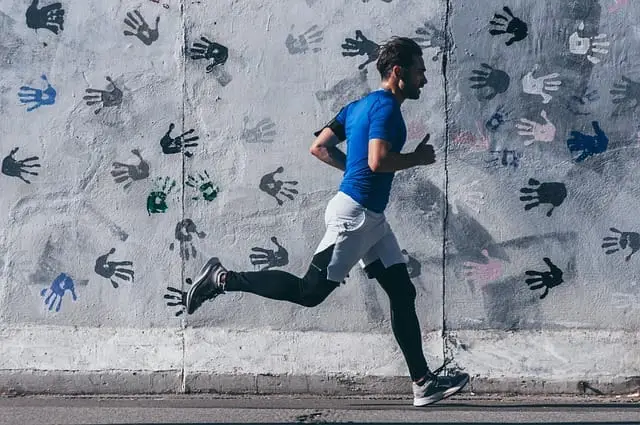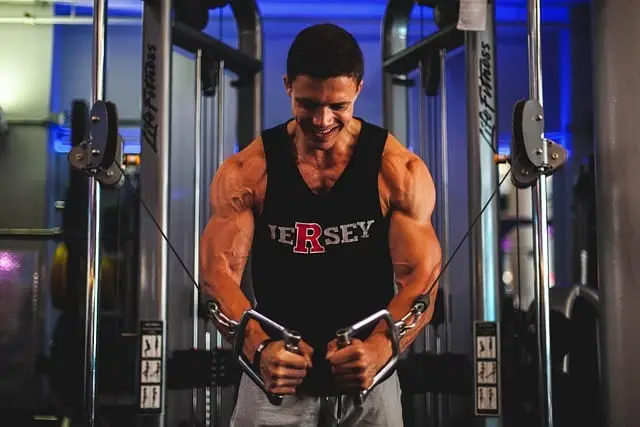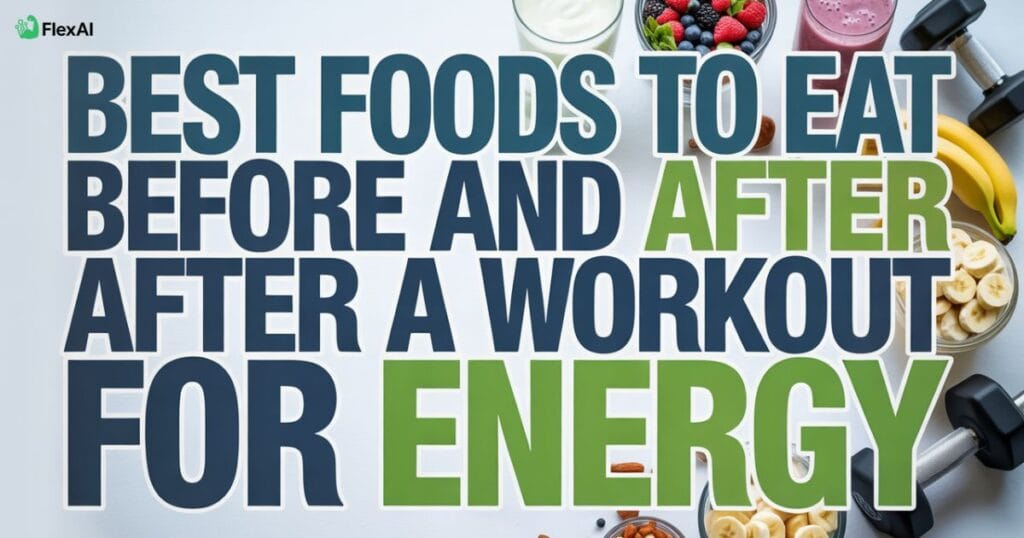
Knowing what to eat before and after a workout for best results can completely change how your body performs. Food gives your muscles power, supports recovery, and helps you train harder. Eating the right meals at the right time fuels your body, keeps energy steady, and improves endurance. Whether you’re lifting weights, running, or doing yoga, smart nutrition is key.
A proper fitness nutrition guide focuses on balance, carbs for energy, protein for repair, and hydration to keep you going strong. Learning meal timing for exercise and understanding muscle recovery nutrition will help you see faster progress, feel less tired, and get the best workout results every time.
Why Nutrition Matters for Workout Performance.
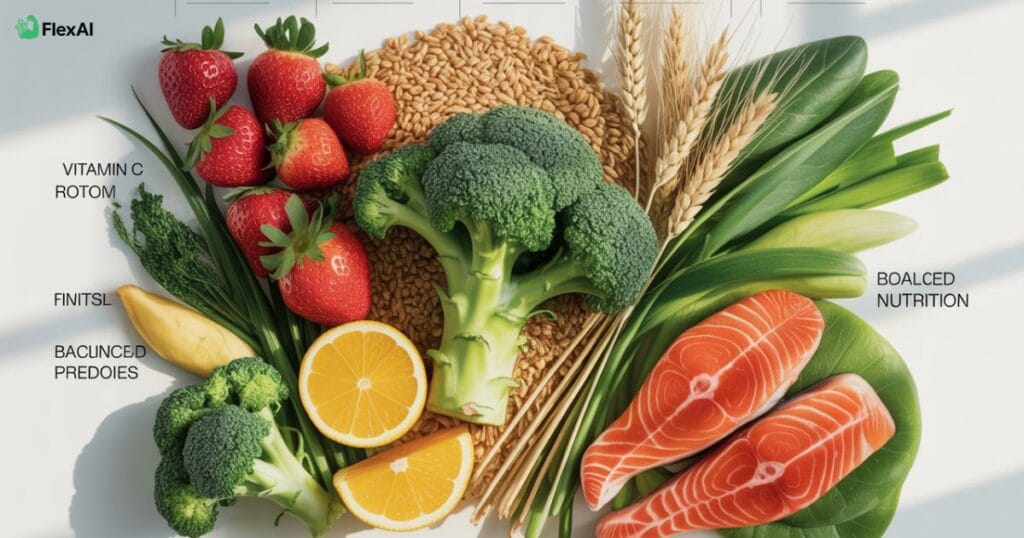
Nutrition affects every rep, run, and movement. Your body needs carbs for energy, protein for strength, and healthy fats for balance. If you eat well, you train harder and recover faster. This balance of carbs before workout, protein for muscle recovery, and proper hydration decides your results.
Think of food as fuel for your car. Without it, performance drops. Proper nutrition supports muscle glycogen replenishment, boosts stamina, and helps your body adapt to training stress. It’s the foundation of any fitness nutrition guide that works long term.
Understanding Pre-Workout Meals
Pre-workout meals prepare your body for exercise. They give you steady energy and prevent dizziness or fatigue. The best pre-workout breakfast ideas combine carbs and protein. They help you power through your session and protect muscles.
Timing matters. Eating too close to your workout can upset your stomach, while eating too early leaves you hungry. Portion size before exercise depends on how long you have before training. Smaller snacks work better if you’re eating before morning workouts, while bigger meals fit better before afternoon or evening sessions.
Best Foods to Eat Before a Workout
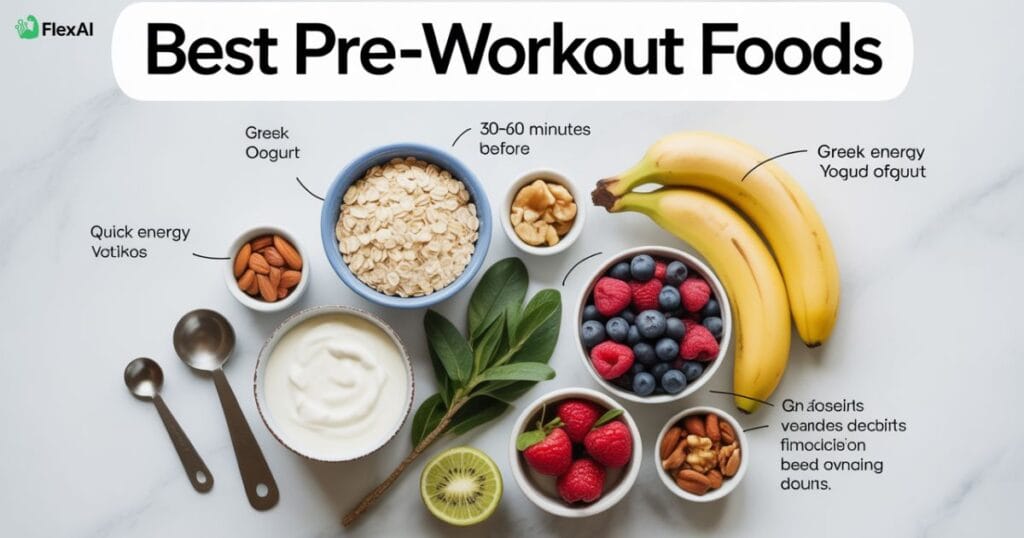
Good energy foods for workouts come from simple, natural sources. Oats, bananas, yogurt, or whole-grain toast give long-lasting fuel. Add a bit of protein like eggs, cottage cheese, or peanut butter to protect muscles.
Avoid heavy or greasy meals. These are foods to avoid before exercising because they slow digestion and make you sluggish. Your goal is light, steady fuel that doesn’t weigh you down. Healthy pre-workout snacks help you stay alert and strong without feeling stuffed.
Sample Pre-Workout Meal Ideas
Below is a table of simple meals that balance energy and digestion. Each option fits different workout times and goals.
| Time Before Exercise | Example Meal | Benefits |
| 2–3 hours | Chicken and rice with veggies | Slow energy release |
| 1–2 hours | Oatmeal with berries and yogurt | Easy digestion and fuel |
| 30–60 minutes | Banana with peanut butter | Quick energy and light protein |
| Morning workout | Smoothie with milk, oats, and banana | Fast absorption and hydration |
These examples of healthy breakfast for workouts fit different lifestyles. The key is to test what feels best for your body.
What to Eat After a Workout
After training, your body is ready to rebuild. Eating soon after exercise helps repair muscles and refill energy stores. This is where post-exercise recovery foods come in. Pair carbs with protein in a 3:1 ratio to speed up repair and recovery.
Good nutrition supports muscle recovery nutrition and replaces glycogen lost during workouts. Don’t delay your meal too long. If you wonder, when should I eat after exercise, the answer is within 30 to 60 minutes. That’s when your muscles absorb nutrients best.
Best Post-Workout Foods and Snacks
Some of the best post workout recovery smoothie ideas include milk, banana, and whey protein. Other great meals include turkey sandwiches, Greek yogurt with fruit, or eggs with toast. These foods rebuild your energy and muscles fast.
If you’re in a hurry, grab something small like a protein bar or chocolate milk. The mix of carbs and protein supports how to refuel after training and how to refuel after the gym. Avoid skipping meals, as recovery starts with food.
Timing: When to Eat Before and After Exercise
Meal timing for exercise affects both energy and muscle repair. The best time to eat before running or any activity is about 1 to 3 hours before. That gives your body time to digest and use the nutrients.
After your workout, eat within 30–60 minutes. Waiting too long slows muscle glycogen replenishment. Wondering how long to wait after eating before exercise? Give your stomach at least 45 minutes for light meals and up to 3 hours for heavy ones.
Hydration: Don’t Forget the Water
Hydration shapes performance just like food does. Many people ask how much water to drink before a workout or how to stay hydrated during exercise. The answer depends on body weight and weather, but here’s a simple rule of thumb.
Drink 2–3 cups of water 2 hours before, half a cup every 20 minutes during, and more afterward. Hydration for athletesis essential. If your workout lasts over an hour, choose sports drink vs water depending on your sweat rate and intensity. It helps how to prevent dehydration during workouts and keeps energy levels steady.
Common Mistakes to Avoid in Workout Nutrition
Skipping breakfast or training on an empty stomach may sound effective, but ask yourself, is it okay to exercise on an empty stomach? For most people, it lowers energy and focus. Always plan some fuel.
Avoid overeating before a workout or waiting too long to refuel. Junk snacks can destroy how eating affects performance. Watch out for energy drinks that dehydrate instead of helping. Stick to natural, nutrient-rich meals.
Sample One-Day Meal Plan for Active People
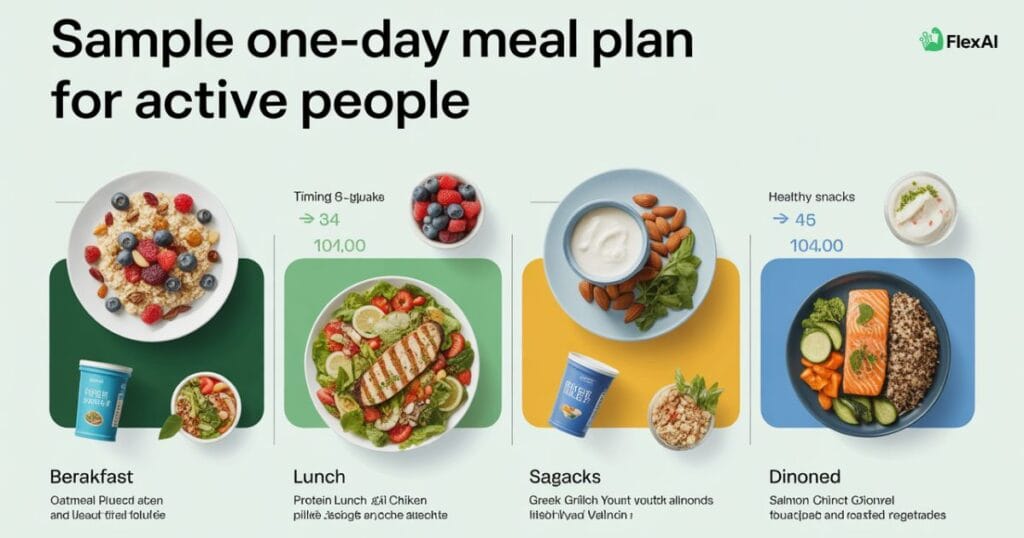
Here’s a simple workout meal plan to guide your day. It keeps energy steady and recovery fast.
| Meal | Time | Example |
| Breakfast | 7:00 AM | Oatmeal with banana and peanut butter |
| Pre-workout snack | 9:00 AM | Yogurt with berries |
| Lunch (post-workout) | 12:00 PM | Grilled chicken with rice and vegetables |
| Snack | 4:00 PM | Apple with almonds |
| Dinner | 7:00 PM | Salmon, quinoa, and steamed vegetables |
| Hydration | Throughout the day | Water and electrolyte drink if needed |
This balanced routine supports foods that help muscle repair, how to balance carbs and protein, and foods that boost workout performance.
Final Thoughts: Build a Routine That Works for You
Everyone’s body is different, so experiment to find what feels best. Keep a journal to track what meals improve your strength, mood, and endurance.
Food is the silent partner of progress. You can train for hours, but without the right fuel, you’ll slow your own results. Focus on consistency, balance, and hydration. That’s how you master what should I eat before working out and what to eat before and after a workout for best results for lasting success.
FAQ’s
1. What is the best recovery food after a workout?
The best recovery foods combine protein and carbs like Greek yogurt with fruit, eggs with toast, or a protein smoothie.
2. What is the 2 hour protein rule?
It means you should eat a protein-rich meal or snack within two hours after your workout to support muscle repair.
3. What foods help muscles recover faster?
Lean meats, eggs, fish, nuts, and dairy help rebuild muscle, while fruits and whole grains restore glycogen.
4. What is the 70/30 rule gym?
Your results depend 70% on diet and 30% on exercise, showing how crucial nutrition is for fitness progress.
5. What is the 3-3-3 rule gym?
It suggests three days of strength training, three days of cardio, and three rest days each month for balanced results.
6. What is the number one food that kills inflammation?
Fatty fish like salmon is top-rated for reducing inflammation due to its omega-3 fatty acids.
